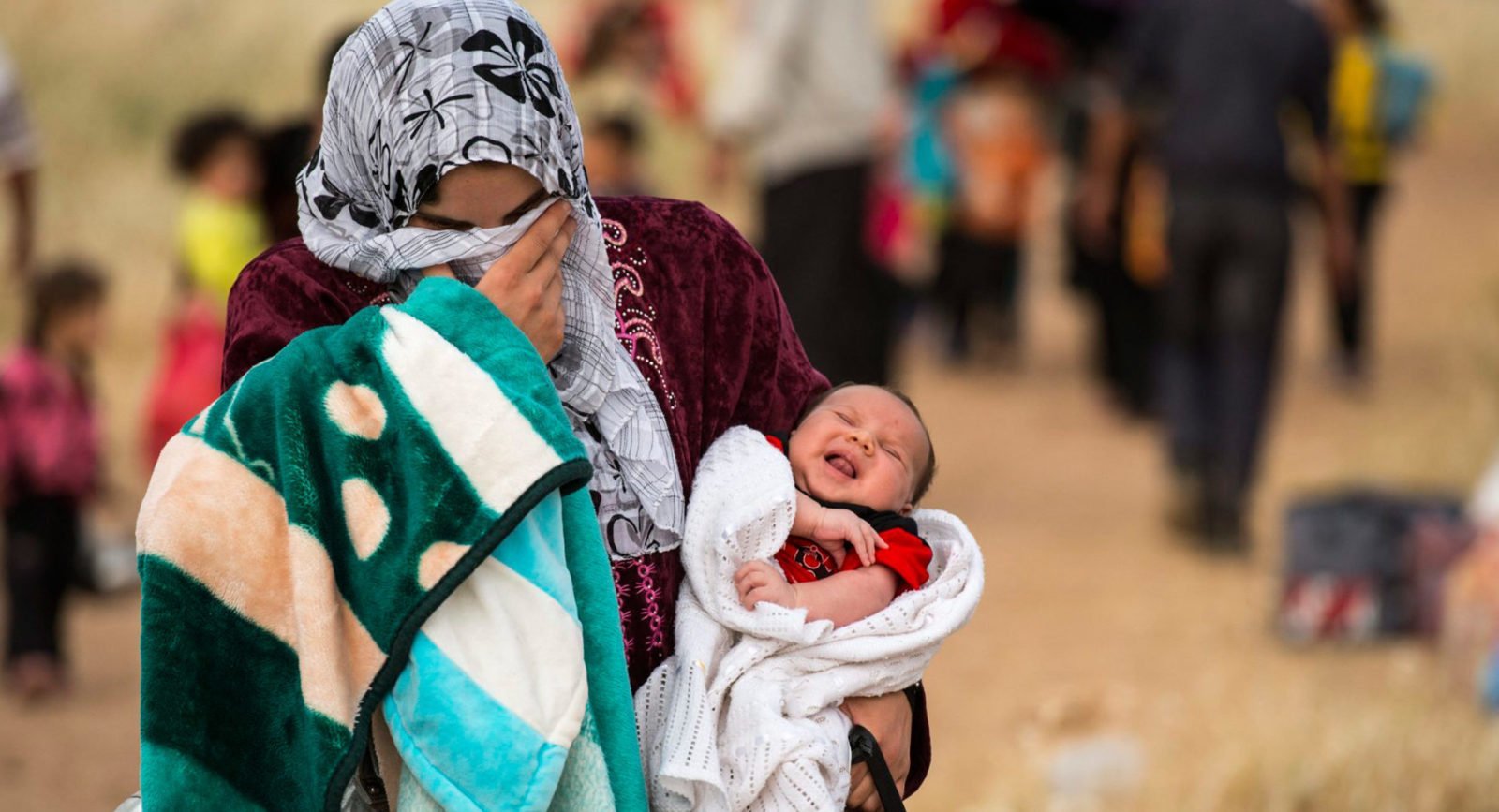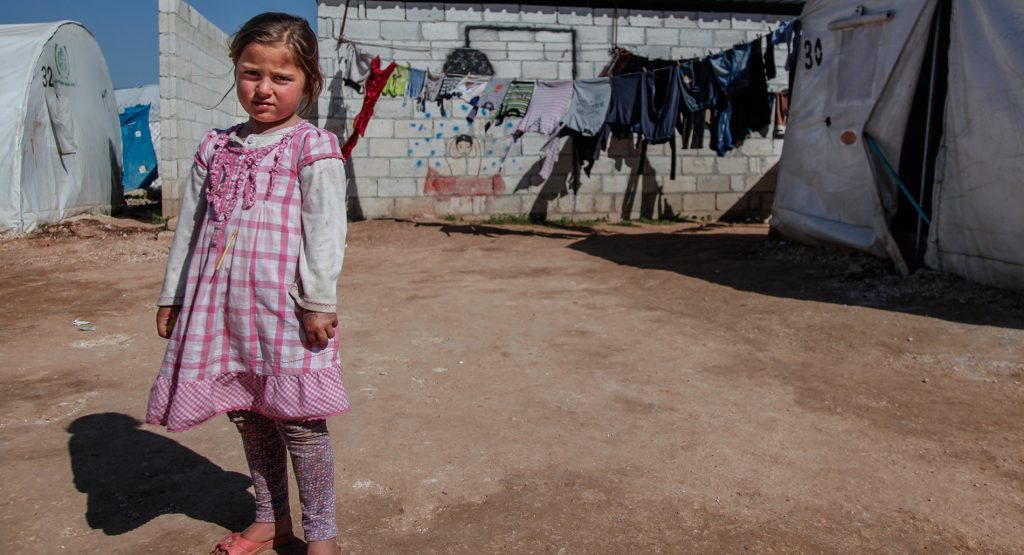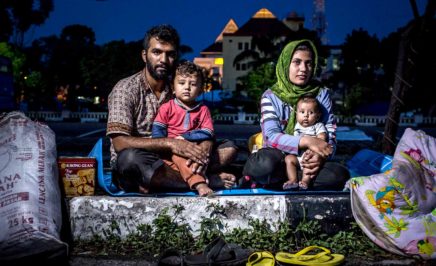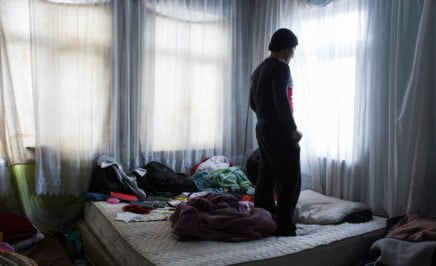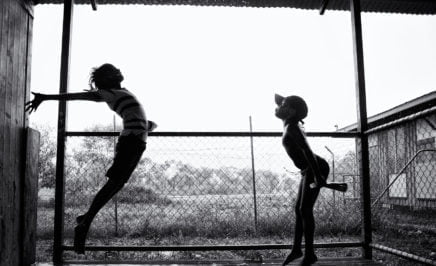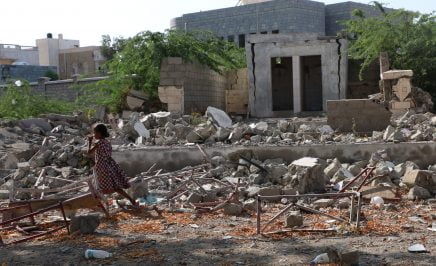Amnesty’s Refugee Campaigner Graeme McGregor describes the work that goes on behind the scenes in our struggle to protect the rights of refugees.
The power of a photo
The tragic image of toddler Aylan Kurdi, who was washed ashore on a beach in Turkey this month, marked a tipping point in Syria’s refugee crisis. A wave of empathy swept the world, forcing our governments to take real action to save thousands of Syrians fleeing brutal conflict.
It’s incredible that a single photo can have the power to change the world. But the truth is, behind the change lies almost four years of action by people around the world fighting for human rights.
A long struggle
Amnesty Australia has been fighting for refugees’ rights for almost two decades. Back in 2008 our refugee expert Dr Graham Thom visited refugee camps on the border between Syria and Iraq. Long before the conflict in Syria began, these camps held people fleeing the violence that had ravaged Iraq.
While at the camps, Graham met a father and his six-year-old daughter. The little girl suffered from severe asthma. She sat smiling but wheezing and struggling for breath as her father explained to Graham that he could not get medicine for her.
When he returned, Graham met with Australian government officials and managed to secure the safe resettlement in Australia of many of the families from that camp. I doubt he could have imagined the scale of the refugee crisis that would soon engulf the region.
Growing crisis
In 2013, 130,000 Syrians were crammed into tents in Za’atri refugee camp – an otherwise lifeless stretch of desert in Jordan. Thousands more were making their way to Europe, by land and sea. With a brutally cold winter sweeping setting in and food and medicine supplies dwindling, life in the camps became increasingly difficult.
The world still stubbornly refused to offer shelter to Syrians, with Europe offering only 0.2 per cent of the resettlement places needed. Countries neighbouring the crisis, like Turkey, Iraq, Jordan, Egypt and Lebanon, continued to host 95 per cent of people seeking safety.
By July 2014, 9.35 million people in Syria had been driven from their homes by the conflict and destruction
Working together
In addition to on the ground research, raising awareness and lobbying governments, here are just some of the things we’ve done together.
- In 2012 Amnesty activists formed a giant SOS in the shallow waters off the Italian island of Lampedusa to highlight the plight of refugees.
April 2013 saw the delivery of a petition to the European Union with 70,000 signatures that called for improved search and rescue operations. - When heads of state met at the United Nations in Geneva to discuss the crisis, we were there to present them with five key steps to alleviate the suffering of Syrian refugees.
- We launched our global #OpentoSyria campaign. We even created an interactive, 3D experience so that people could see for themselves the destruction forcing Syrians to flee. And our refugee expert, Graham, flew to Geneva to urge governments to do more.
- In Australia, we met Syrians who had been lucky enough to reach safety in Australia. We delivered a public petition to the Immigration Minister calling for the emergency resettlement of 7,500 Syrian refugees.
- And in September 2015, 26,000 Australians signed our petition calling on the Australian Government to offer asylum to 20,000 Syrian refugees.
Never give up
Although the past few years have been difficult, Amnesty and its supporters haven’t given up.
This is what Amnesty International does. We never stop working to protect the rights of the most persecuted, even when it seems that no one is listening. A single picture can tip the balance, but it’s the work of Amnesty and countless other activists that gets us to the tipping point.
We never stop working to protect the rights of the most persecuted, even when it seems that no one is listening.
There’s still much more work to be done to protect the rights of Syrian refugees, but you can trust that Amnesty’s staff, activists and supporters are ready for it.
